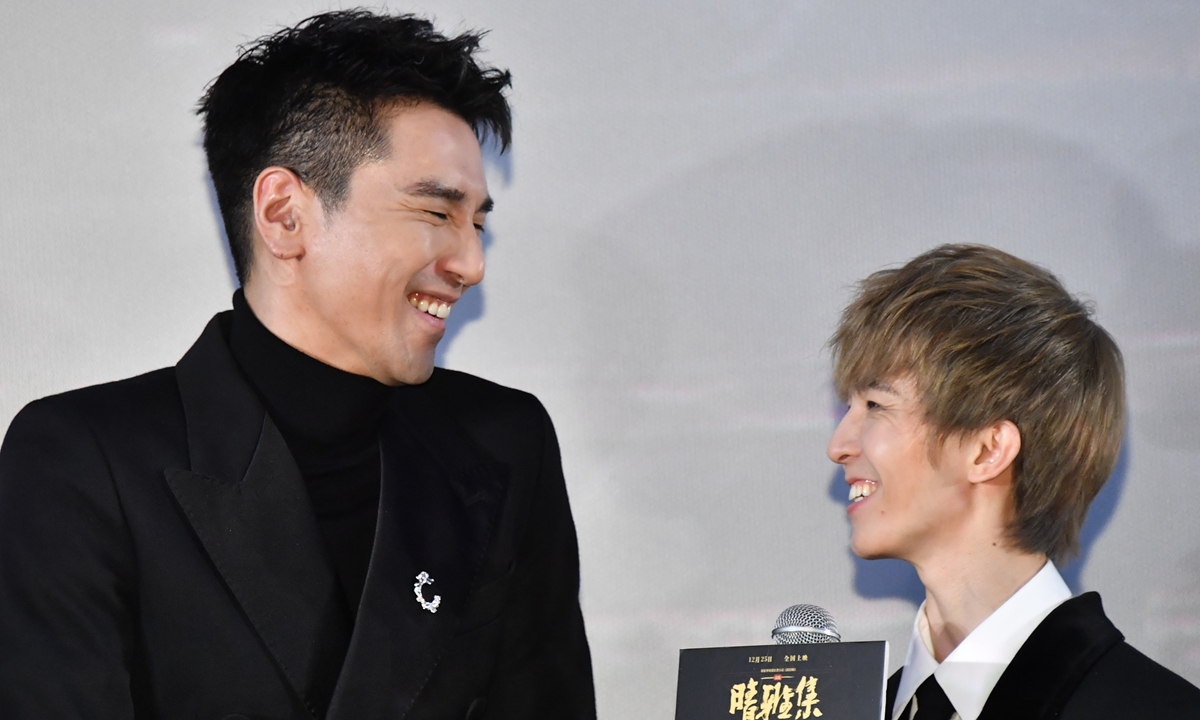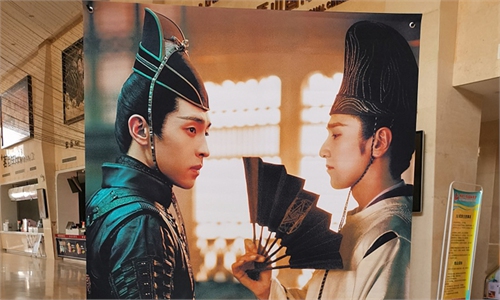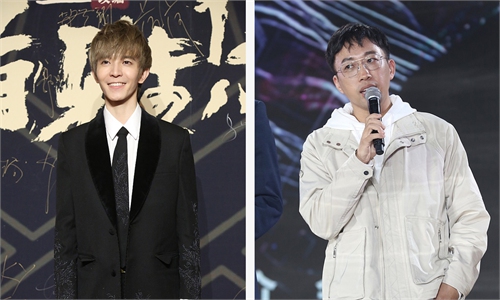ARTS / FILM
Two Chinese films accused of plagiarism to be removed on Monday: report

Film director Guo Jingming (right) and actor Mark Zhao (left). Photo: IC
Citing industry insiders, Chinese entertainment site ifeng.com has reported that two Chinese films that have been accused of copying foreign works will be removed from cinemas starting Monday. The report comes as Guo Jingming, an author and the director of one of the films, apologized on Thursday for plagiarizing another author's work in one of his novels from nearly two decades ago.According to the site, industry insiders and one employee from Oran Universal Cinemas in Beijing confirmed on Saturday night that Chinese consume fantasy film The Yin-Yang Master and comedy film Bath Buddy will be no longer to be screened starting from Monday.
"We just received the notice, and we are going to temporarily change the film schedule," said the employee.
The veracity of the report is still in question as no official statements about the films have been issued so far and Chinese ticketing platforms such as Taopiaopiao show that tickets can still be purchased for both films well into the first full week of January, although screen times are extremely limited.
In December 2020, Chinese media reported that The Yin-Yang Master had been accused of including scenes that are very similar to the 2016 Marvel superhero film Doctor Strange. The Yin-Yang Master, which debuted in Chinese mainland cinemas on December 25, has earned an estimated 435 million yuan ($66.5 million) as of Sunday.
On Thursday, Guo issued a long-awaited public apology on China's Twitter-like Sina Weibo for copying writer Zhuang Yu's original novel In and Out of the Circle in his full-length 2003 novel Never Flowers in Never Dreams and promised to compensate Zhuang with all his copyright income from the novel. Guo had originally been found guilty of plagiarism and ordered by a Beijing Intermediate Court to issue the apology back in 2006.
Bath Buddy is accused of copying South Korean webtoon God of Bath without the consent of MoonWatcher, a South Korean production company founded in 2008, according to a report from the Korea Times.
Back in early December 2020, Yi Xiaoxing, the director of Bath Buddy, addressed accusations of plagiarism, saying that he did not copy God of Bath and emphasizing how his work is different from the South Korean comic.
The hashtag about the two films' possible removal and Guo's apology has earned millions of views and sparked hundreds of thousands of discussion threads on Sina Weibo.
Many Chinese netizens criticized the filmmakers while showing empathy for the films' actors who put so much energy in their roles.
"Shame on them. I just feel sorry for the actors and the investors who trusted in them and spent so much money on production and promotion," one Chinese netizen wrote on Sina Weibo.
"This is humiliating for us! Netflix just purchased the overseas copyright for The Yin-Yang Master, but now that it is suspected of plagiarism, I wonder how they will respond to it," another netizen asked.
Feng Xiaoqing, an intellectual property law expert with the China University of Political Science and Law, told the Global Times on Sunday that investors usually sign contacts that include credibility clauses with directors. If a work is found to have plagiarized another work, investors can hold infringers accountable and ask for compensation.
Xu Xinming, a Beijing-based lawyer specializing in intellectual property rights, told the Global Times that he is in favor of China's new Copyright Law, which is scheduled to come into force in June 2021.
"This law can provide a healthier and fairer environment for the film, television and literature in our country, and can serve as a warning for those who want to take advantage of loopholes," Xu said.
According to the official website of China's National People's Congress, for intentional infringement, if circumstances are serious, infringers may have to pay compensation of up to five times what they earned off of the plagiarized content.
Guo was not the only big name in film and TV to issue an apology for plagiarism on Thursday.
Famed producer and screenwriter Yu Zheng also made good on a long-issued court-ordered apology in a statement on Sina Weibo apologizing for plagiarizing well-known Chinese romance novelist and screenwriter Chiung Yao's 1993 novel Plum Blossom Mark in his TV drama Palace 3: The Lost Daughter broadcast in 2014.
Following his apology, Chinese media reported that Yu's appearances as a judge in the third episode of the third season of Chinese variety show I Am the Actor have been removed.




